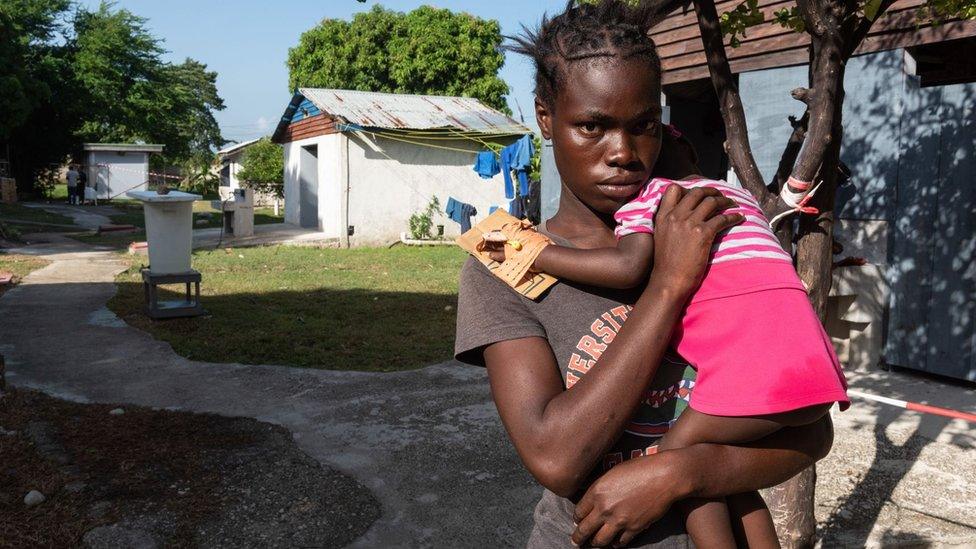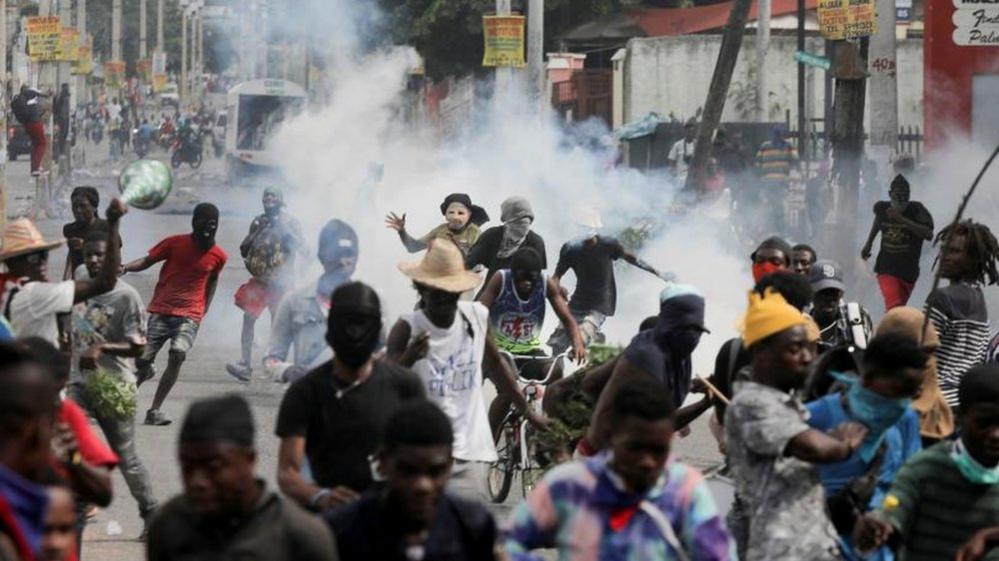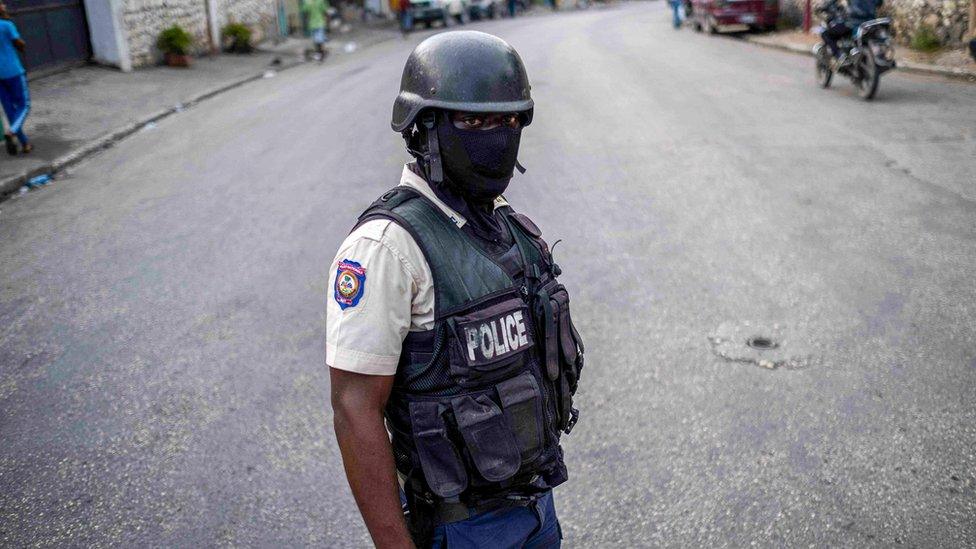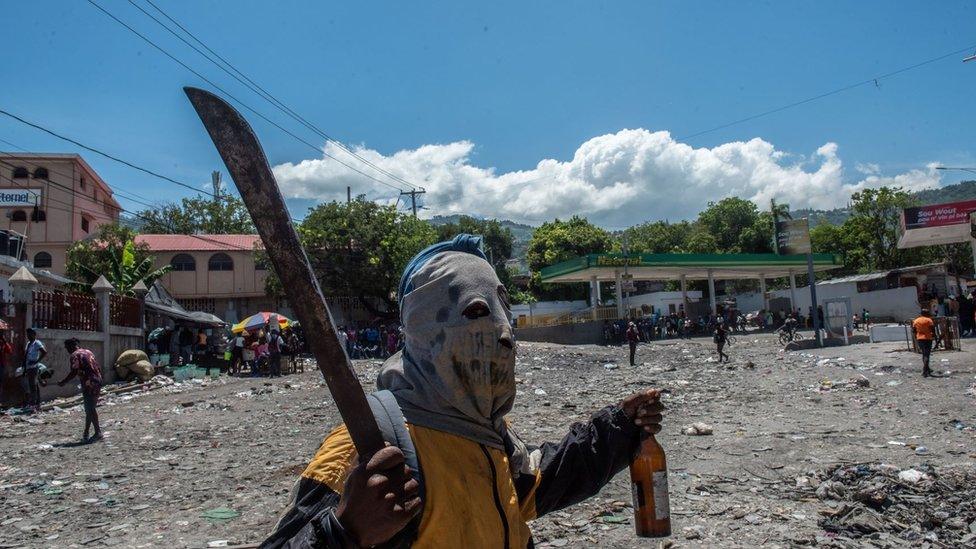Haiti: People will die as country nears breaking point - UN
- Published

Across Haiti, almost five million are struggling with malnutrition
The United Nations is warning that hunger in one of Haiti's biggest slums is at catastrophic levels, as gang violence and economic crises push the country to "breaking point".
Nearly 20,000 people in the capital's impoverished Cité Soleil area have dangerously little access to food and could face starvation, the UN says,
Across Haiti, almost five million are struggling with malnutrition.
"Haiti is facing a humanitarian catastrophe," a top UN official said.
"The severity and the extent of food insecurity in Haiti is getting worse," Jean-Martin Bauer, the Haiti country director for the UN's World Food Programme added.
The poorest nation in the Americas is suffering acute political, economic, health and security crises which have fuelled a rise in violence and paralysed the country.
Powerful gangs have blocked Haiti's main fuel terminal, crippling its basic water and food supplies.
In the Cité Soleil neighbourhood, the UN said levels of food insecurity had reached the highest level on its classification system - Phase 5 - meaning residents have dangerously little access to food and could be facing starvation.
Mr Bauer said Haitians "have gone through the gauntlet".
Anger at the government's handling of the country's multiple crises have boiled over into anti-government protests. These have escalated to looting with at least one woman reportedly killed in clashes.
On Tuesday, the World Health Organisation said there had been 16 cholera deaths and 32 confirmed cases, three years after an epidemic of the water-borne disease killed 10,000 people.
Another UN official said 100,000 children under the age of five were severely malnourished and are especially vulnerable to cholera.
Prime Minister Ariel Henry has asked for foreign military help, but the call has been criticised by some Haitians who see it as foreign interference.
The UN has since called for the immediate deployment of a special international armed force to Haiti, but it is not yet clear which countries would provide the members of such a force and what its task would be.
Gangs have taken control of key highways and Varreux, Haiti's largest fuel terminal. With food and fuel deliveries suspended as a result, more and more Haitians are going hungry.
Several warehouses run by aid organisations have also been looted, resulting in the most vulnerable going without food and drinking water.
Haiti is one of the poorest countries in the world and has suffered a number of recent crises, most notably the assassination of its president, Jovenel Moïse, in July 2021 and a massive earthquake that left more than 2,200 people dead just a month later.
Related topics
- Published11 October 2022

- Published8 August 2022

- Published8 October 2022
